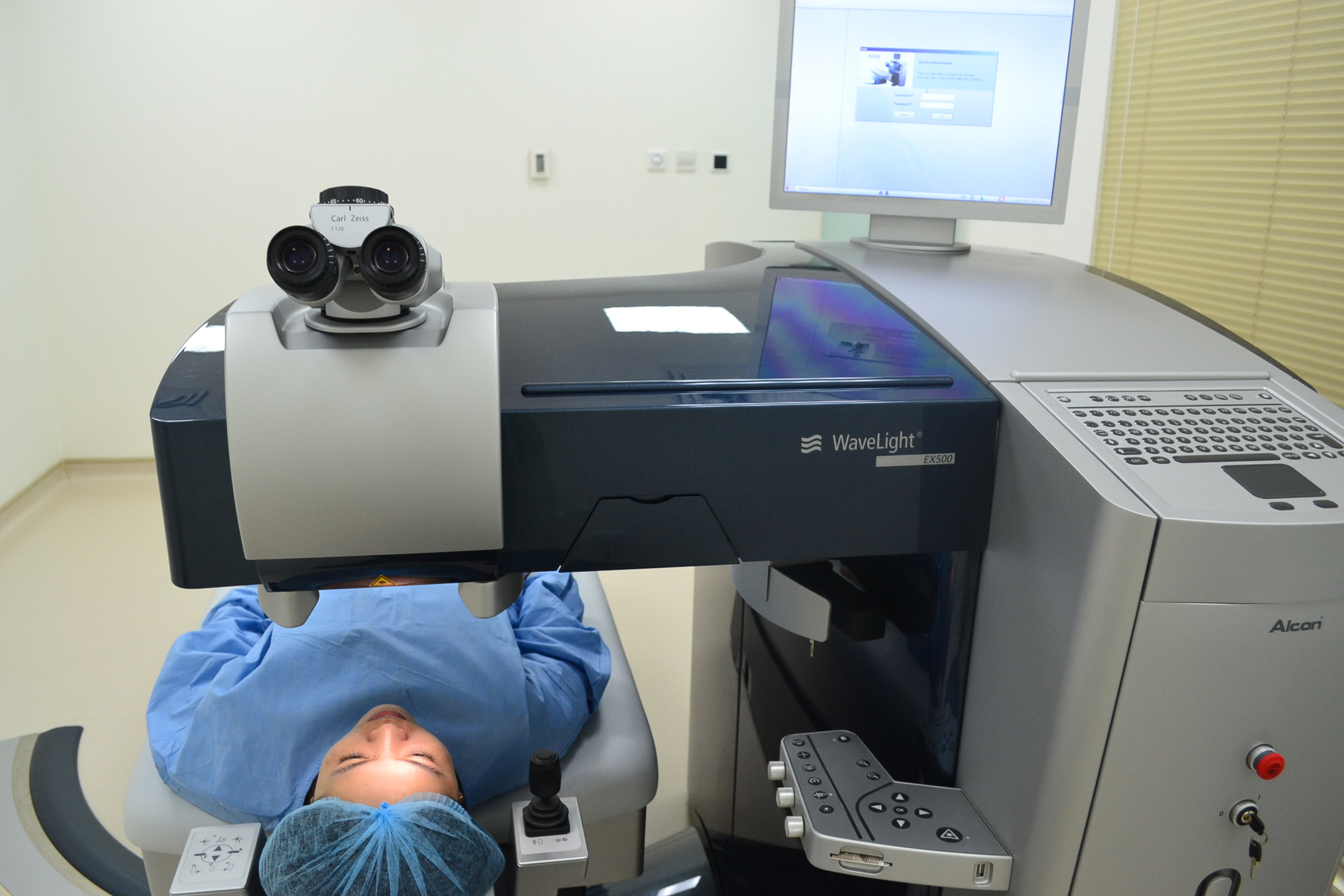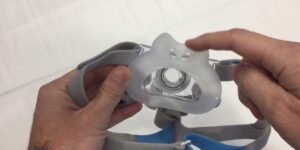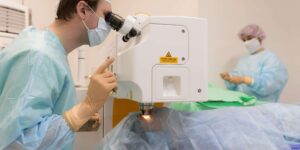The most well-known and often performed laser refractive surgery method for vision correction is laser eye surgery. LASIK, or laser-assisted in situ keratomileusis, is a surgery that may be used to replace contact lenses or glasses.
In order to improve eyesight, lasik surgery employs a particular kind of cutting laser to precisely modify the shape of the dome-shaped transparent tissue in front of the eye (cornea).
In eyes with proper vision, the cornea bends (refracts) light exactly onto the retina in the back of the eye. Nearsightedness (myopia), hyperopia (hyperopia), and astigmatism, on the other hand, distort the light, resulting in distorted vision.
While glasses or contact lenses may be used to correct vision, corneal reshaping can also provide the necessary refraction.
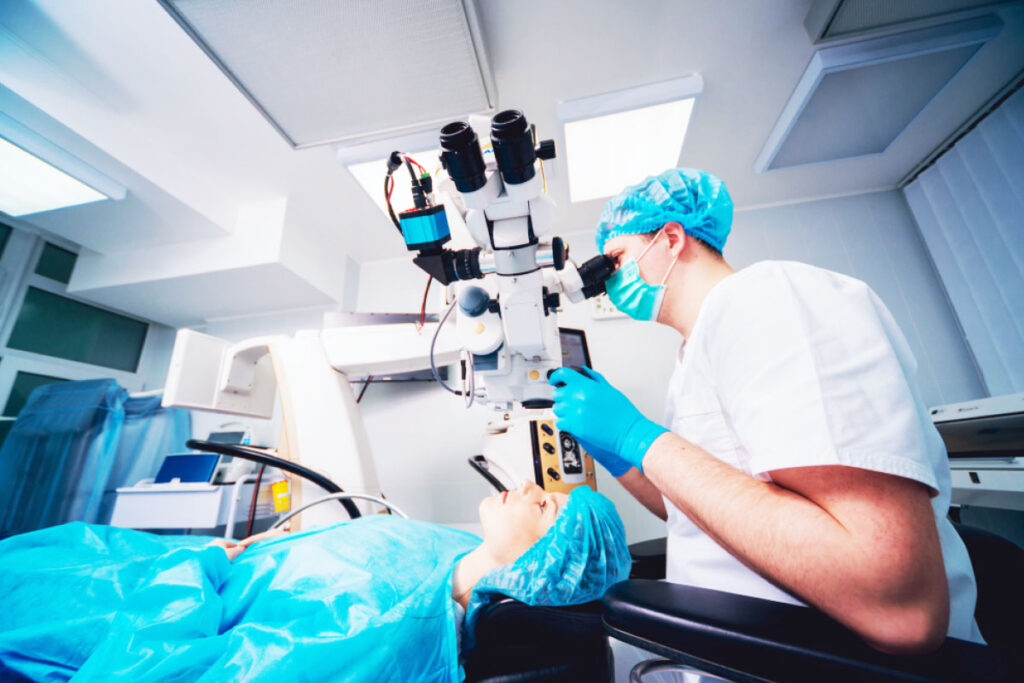
Why is it done this way?
Laser eye surgery may be an effective treatment for one or more of the following vision problems:
Myopia
Light rays concentrate in front of the retina when your eyeball is somewhat longer than normal or the cornea is too sharply curved, obscuring distant vision. Objects that are near to you can be seen clearly, while items that are far away cannot.
Precognition (hyperopia).
Light is directed behind the retina rather than on it when the eyeball is shorter than normal or the cornea is too flat. Close vision and, in certain situations, distant vision are both harmed as a result of this.
Astigmatism.
When the cornea bends or flattens unevenly, astigmatism arises, interfering with the focus of near and distant vision.
If you’re contemplating LASIK, you’re probably already wearing glasses or contact lenses. Your eye doctor will discuss with you to see whether LASIK or another kind of refractive treatment is a good fit for you.
Risks
Visual loss as a consequence of complications is exceedingly rare. However, certain LASIK side effects are rather common, particularly dry eyes and temporary visual difficulties like glare.
These usually go away within a few weeks or months, and just a few people think of them as a long-term problem.
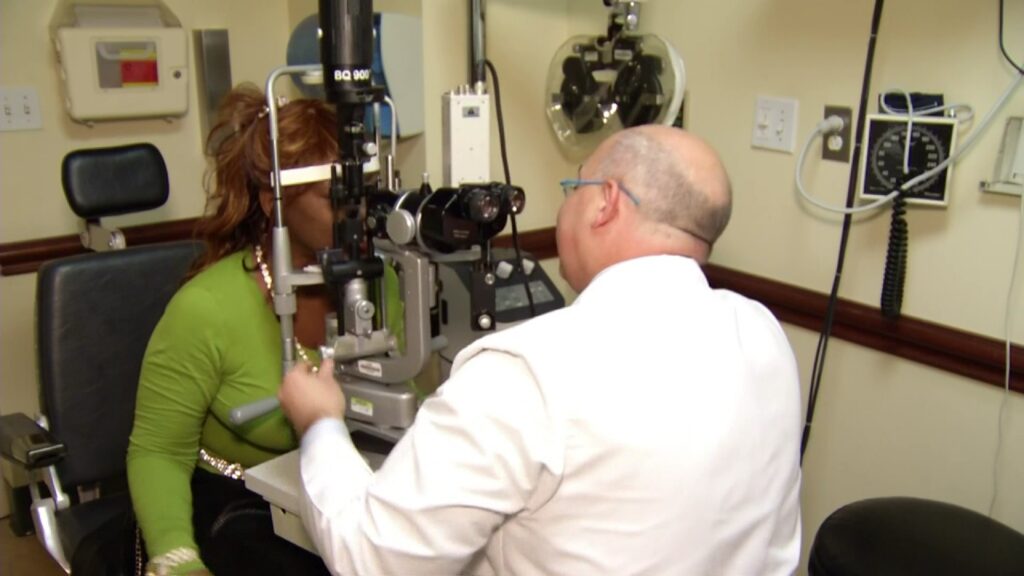
The following are some of the dangers of LASIK:
Eyes that are swollen and irritated.
Tear production is temporarily reduced after LASIK. As your eyes heal, they may seem particularly dry for the first six months or so after surgery. Your eyesight may be harmed by dry eyes.
To treat dry eyes, your eye doctor may prescribe eyedrops. If you have severe dry eyes, special plugs may be inserted in your tear ducts to prevent tears from draining away from the surface of your eyes.
Halos, glare, and double vision are all symptoms of double vision.
You may have problems seeing at night after your LASIK, which usually lasts a few days to a few weeks. Symptoms include increased sensitivity to light, glare, halos around bright lights, and double vision.
Even if you get a good visual result under standard testing conditions, your vision in dim light (such as at twilight or in fog) may be impaired to a greater degree than before surgery.
Under-corrections.
You will not attain the increased eyesight you seek if the laser damages inadequate tissue in your eye. Individuals who are nearsighted are more prone to need undercorrections. You may need another LASIK procedure within a year to eliminate additional tissue.
Overcorrections.
Furthermore, the laser may remove an excessive amount of tissue from your eye. It’s possible that fixing overcorrections is more difficult than correcting undercorrections.
Astigmatism.
The loss of tissue in an uneven manner may cause astigmatism. It’s possible that you’ll need further surgery, glasses, or contact lenses.
Issues with the flaps.
Folding back or removing the flap from the front of your eye during surgery might cause problems including infection and excessive tears. The outermost corneal tissue layer underneath the flap may form improperly throughout the healing process.
Regression.
When your eyesight progressively returns to your previous prescription, this is known as regression. This is an issue that occurs seldom.
Vision loss or change.
Surgical complications may also result in vision loss. Furthermore, some people may lose their ability to see as sharply or clearly as they did before.
Hazards are exacerbated by certain circumstances.
Certain medical conditions might increase the risks of laser eye surgery or make the results less predictable.
Your doctor may not recommend laser refractive surgery if you have certain conditions, such as rheumatoid arthritis or a weakened immune system caused by immunosuppressive medications or HIV.
- Corneal inflammation, lid abnormalities, eye traumas, or eye diseases such as uveitis, herpes simplex in the eye area, glaucoma, or cataracts
- Corneal inflammation, lid abnormalities, eye traumas, or eye illnesses such as uveitis, herpes simplex in the eye region, glaucoma, or cataracts
If you have an eye illness that causes the cornea to thin and bulge, or if you have a family history of it, laser eye surgery is typically not recommended:
- engage in contact sports that may include blows to the face
- have severe nearsightedness
- have exceptionally big pupils or thin corneas
- have age-related eye changes that cause vision to become less clear
- have age-related eye changes that cause vision to become less clear
If you’re contemplating laser eye surgery, talk to your doctor about your worries and questions. Your doctor will evaluate whether you are a good candidate for this or similar procedures.
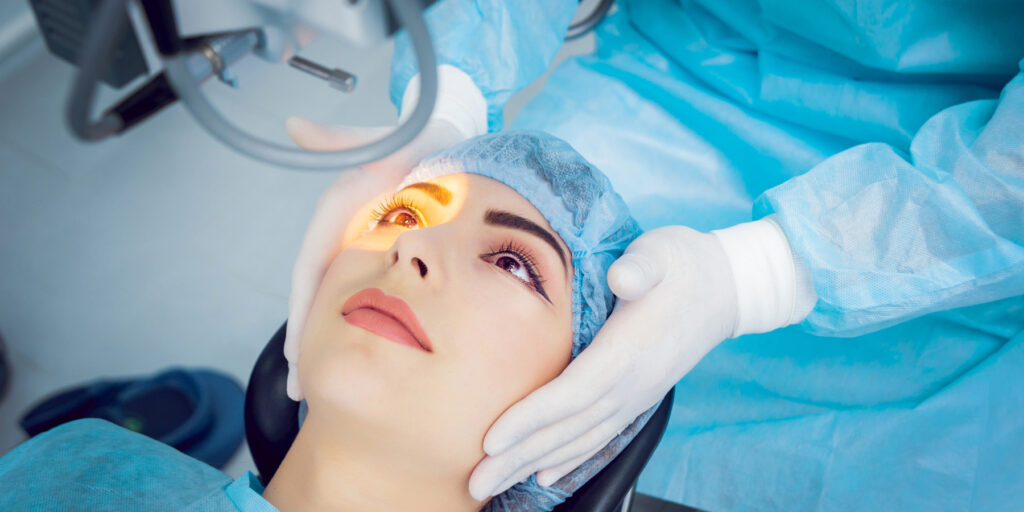
Methods of preparation
The following are some of the actions you may take to prepare for laser eye surgery:
Be informed about the financial ramifications of surgery.
Most insurance companies will not cover the cost of laser eye surgery since it is deemed elective. Prepare to pay for your expenses with your own money.
Arrange for return transportation.
You’ll need transportation to and from the surgery center. You may have leftover effects from the medicine you took before the laser eye surgery, and your vision may be blurry.
Don’t use any eye makeup.
Avoid applying eye makeup, creams, scents, or lotions the day before and the day of your surgery. In the days leading up to surgery, your doctor may encourage you to brush your eyelashes daily or more often to remove debris and lower your risk of infection.
What to look forward to
Prior to the procedure: Patients who are properly evaluated prior to eye surgery to ensure they are good candidates for the treatment frequently have the best long-term LASIK results.
If you use contact lenses, which have the potential to change the curvature of your cornea, you must stop using them and only wear your glasses for at least a few weeks before your evaluation and operation. Depending on the kind of contacts you use and how long you’ve been using them, your doctor will give you specific guidelines.
